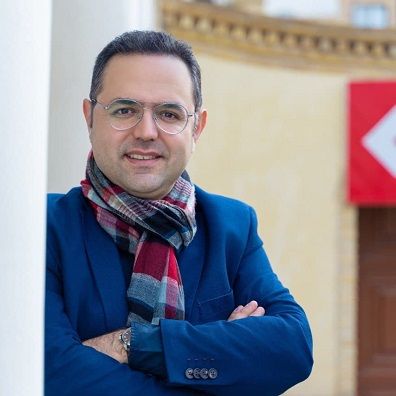Prof. Dr. Pooyan Azadeh
Iran
Pianist and Professor of piano at Tehran University of Art
DAAD Doctoral Scholarship 2007–2011

Dr. Pooyan Azadeh
© Dr. Pooyan Azadeh
What is indispensable to a culture – that’s something one could spend a great deal of time debating. Not so for Dr Pooyan Azadeh: the German-Iranian pianist and professor of music has set himself the task of mediating music in theory and practice. Azadeh, who since October 2015 has been Tehran University of Art’s first full professor of piano, initially completed his training as a concert pianist at the university where he now teaches. His studies focused on European piano music. “But my real passion even back then was Persian piano music,” he says. “Besides the traditional works of Mortezā Mahjoubi, I was fascinated by the music of my teacher, the distinguished Persian pianist Javād Maroufi, who died in 1993. He combined Persian piano music with Western elements.”
For me, the DAAD scholarship was a mark of honour, as well as paving the way for my academic and musical development.
– Pooyan Azadeh
Pooyan Azadeh’s keen interest in the subject eventually took him away from international concert halls to the world of academia – previously uncharted territory for him. With a DAAD scholarship in his pocket, he pursued his PhD at Martin Luther University Halle-Wittenberg – the first person to study Persian piano music in terms of music education. He felt that he was positively predestined to choose Germany as a place to pursue research. “In Iran, it’s not possible to study music education,” he explains. “Germany, on the other hand, is considered a pioneer in this area – music education has a long tradition there. Over the centuries, many different methods and didactic approaches have evolved. And the quantity and quality of publications on music education are quite remarkable.” But he would not have been able to pursue his research without the support of the DAAD: “For me, the DAAD scholarship was a mark of honour, as well as paving the way for my academic development in a new musical environment,” says Azadeh. “After completing my PhD in 2015, I obtained German citizenship as a highly qualified person.”
The DAAD alumnus would now like to establish his research specialty in his native country, too. “So far, the music schools in Iran have focused exclusively on European piano music,” he says. “The Persian tradition, which only gained societal prestige around 1900, is not taught here.” Yet the critical study of Persian piano music is definitely rewarding, as demonstrated not least by his doctoral thesis. “My research has met with considerable international interest. I have talked about it widely, including at conferences in Norway and China,” says Pooyan Azadeh.